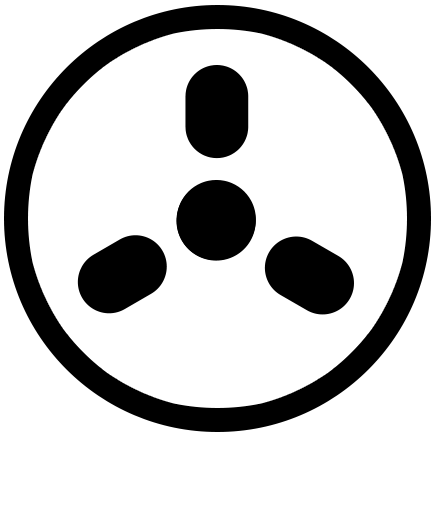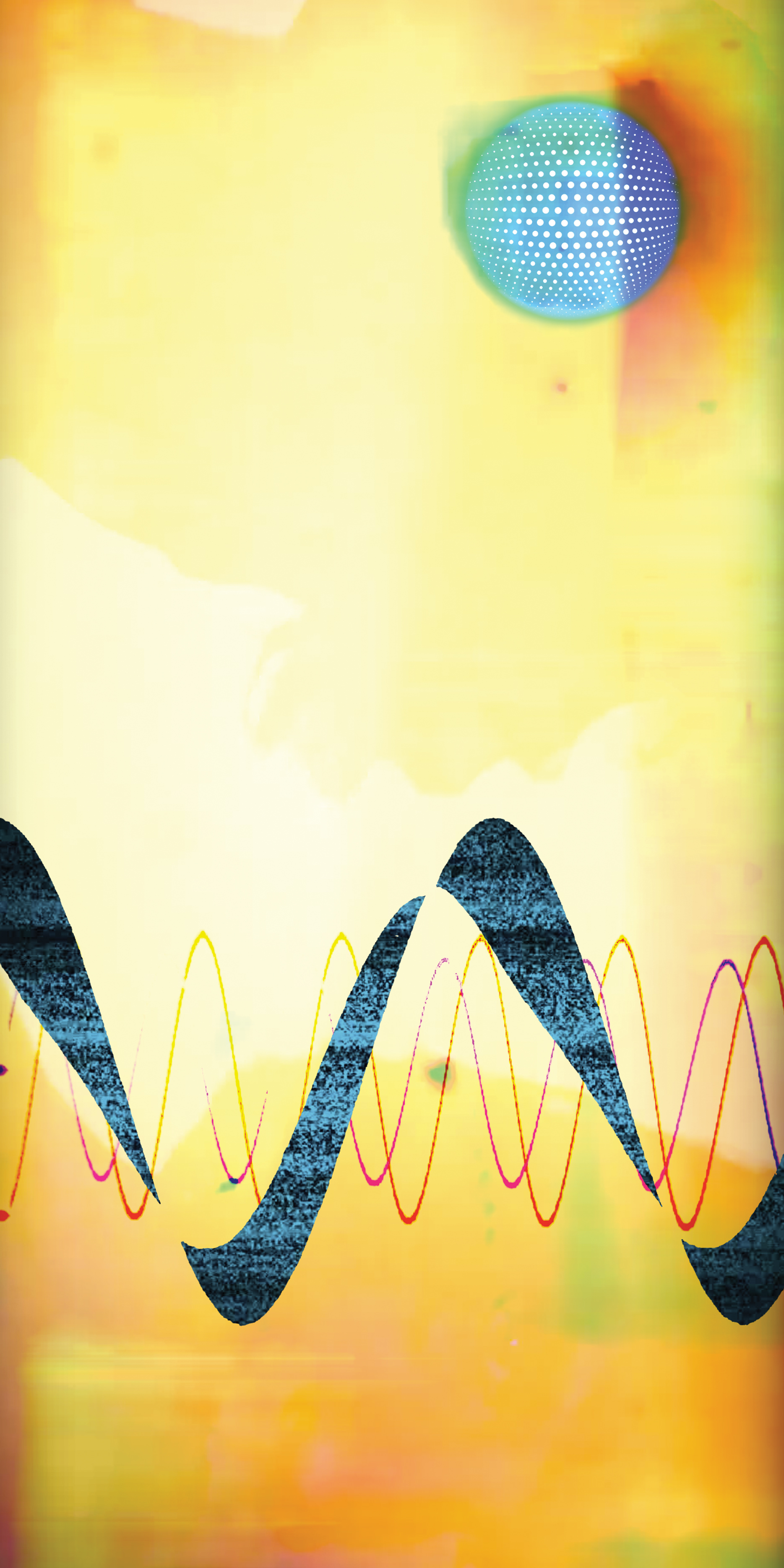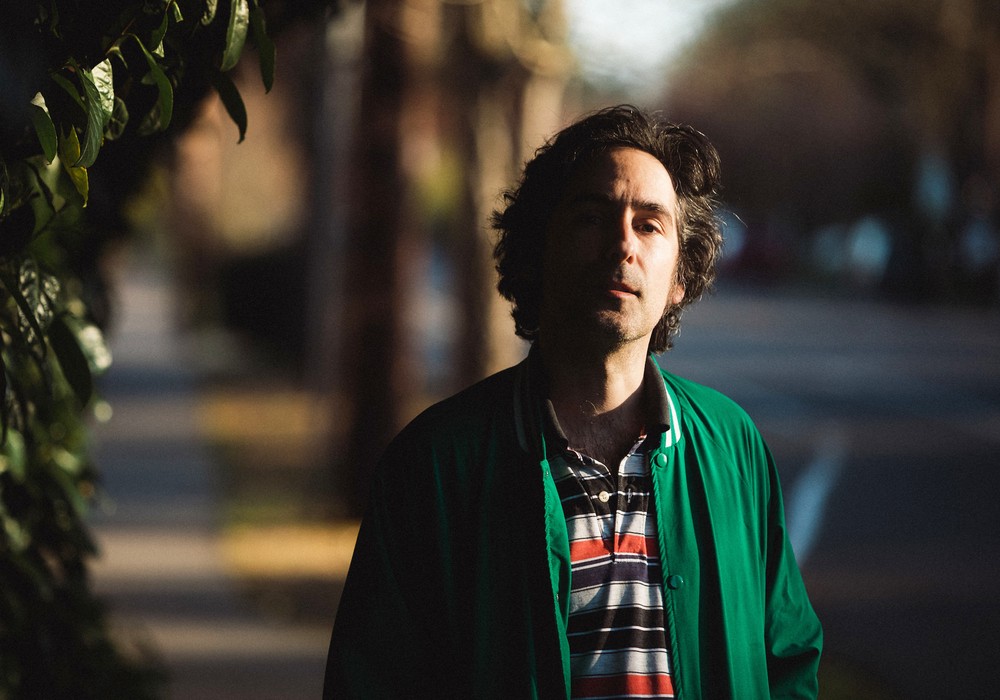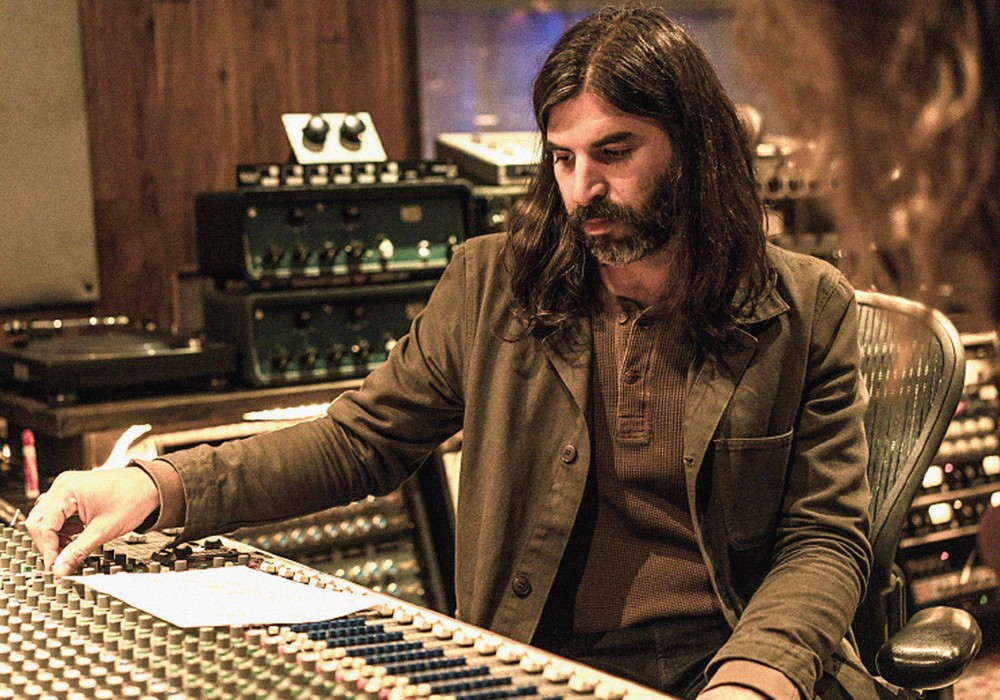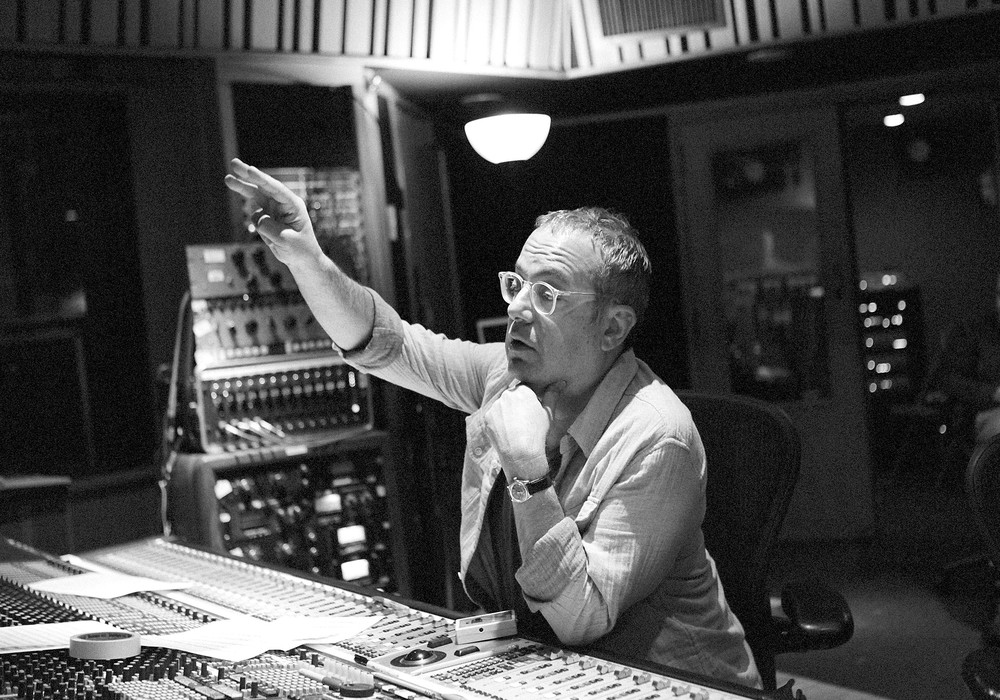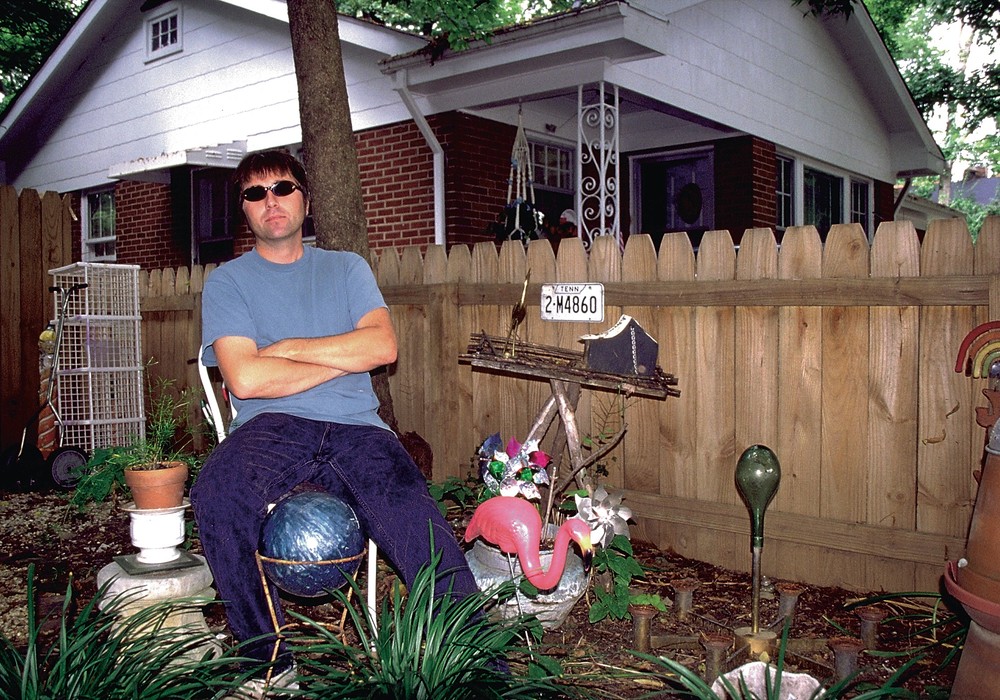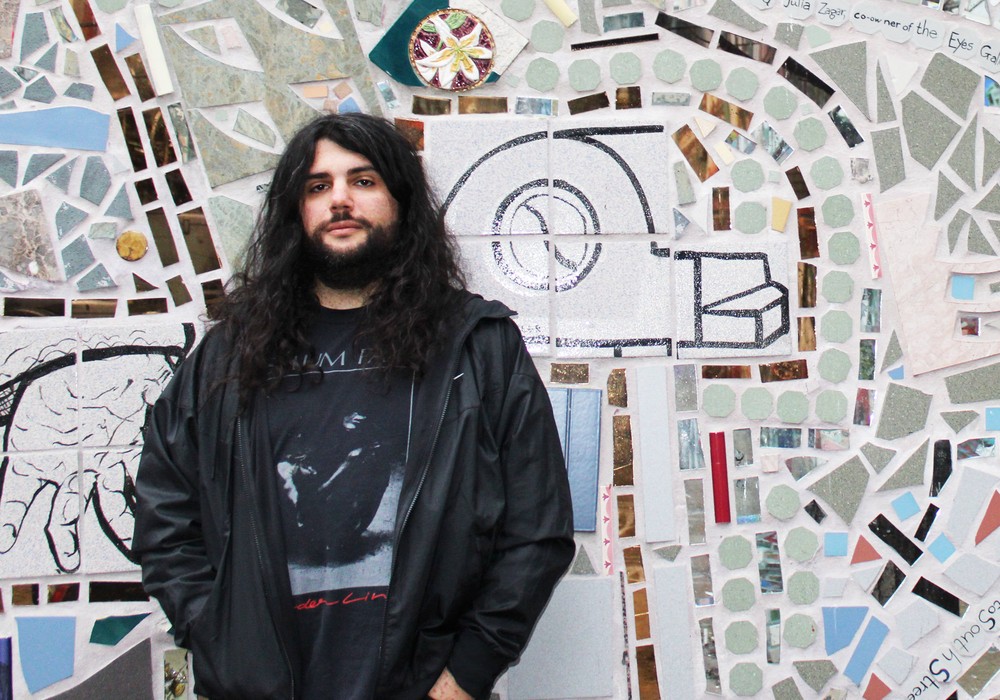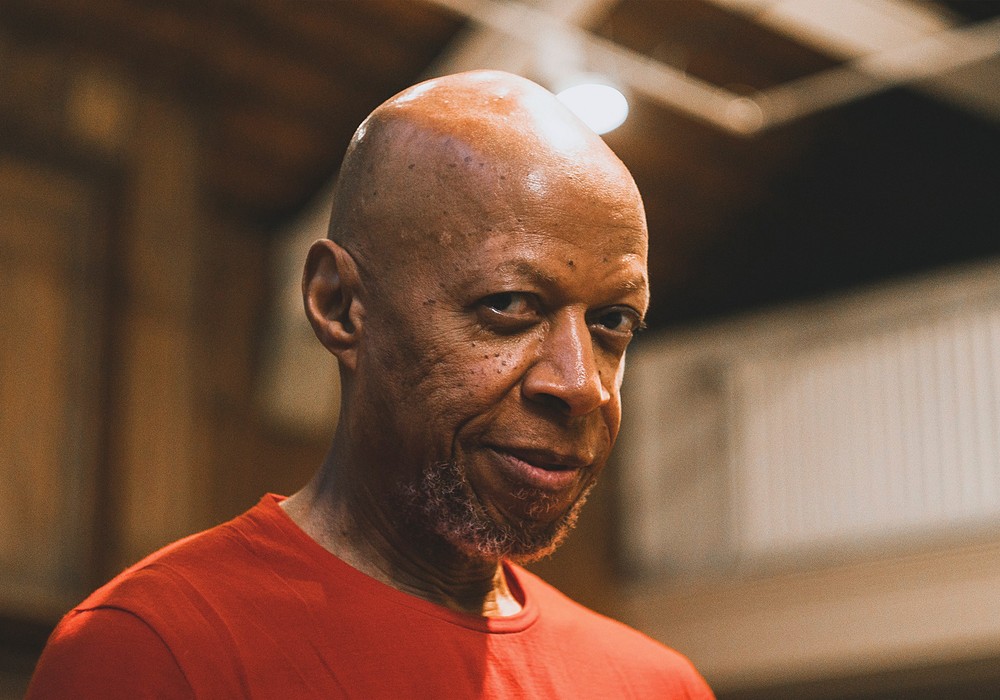I’ve been following the career of Portland, Oregon's Blitzen Trapper since their first self-titled release in 2003. I think I bought the CD based on the name of the band and album cover alone. I was taken with the homemade quality of the recordings paired with the interesting songwriting. It reminded me of Lou Reed, as well as The Beatles at times. I’d even occasionally find hints of The Grateful Dead’s Workingman’s Dead or Pink Floyd’s Meddle. Whatever the reference, it always had a hint of Northwest isolation with a side of fog and drizzle. I loved it. They remained a bit of a secret to the world until 2008’s album Furr. That record, and specifically the title track, brought them into the mainstream’s consciousness. “Furr” was a simple tune, recorded in an evening on a 4-track cassette machine in the rehearsal space the band’s singer and songwriter, Eric Earley, was living in at the time. The year 2020 brought the release of Blitzen Trapper’s tenth release Holy Smokes Future Jokes. It is a concept album of sorts, based on the George Saunders book, Lincoln in the Bardo, which is a loose interpretation of the Tibetan Book of the Dead. It is a lyrically rich and sonically satisfying collection that examines death, dying, living, and our very existence. It is humorous, hopeful, and poignant. A perfect record and document for the times.
Blitzen Trapper records have always had a unique sound. Has interest in the recording aspect of your music career always been there for you?
Yeah. When I was about 18 or 19, living in Salem still, I’d always played music growing up, from a very young age. After high school, my dad bought me a Yamaha 4-track cassette deck. I started multitracking with that in my bedroom. This would have been in ‘96. I made tons of recordings. I still have a box of cassette tapes full of those. I don’t have the deck anymore. It died during its 25-year lifespan. But that’s how I got into recording, that little Yamaha 4-track deck that I got.
Was that just you experimenting, or did you have some people you were learning from?
No, I was experimenting on my own. I didn’t know what I was doing. I would read things here and there. But, honestly, it was me figuring out how to use it over time. I didn’t know anybody who had a 4-track. Then, a few years later, people started to get them. The Tascam especially; the Portastudio came out with these smaller models. I had it in my bedroom and was experimenting with it constantly.
Did you have a [Shure] SM58, or something similar?
Yeah, I only had a 58! What I started out with was my dad’s old 2-track reel-to-reel from the early ‘60s. It had an 1/8-inch jack microphone that came with it. I found a 1/4-inch jack and used that for quite a while at first.
Was that one of those old TEACs?
It was a Sony.
My dad had this crazy wood-paneled reel-to-reel TEAC.
I recorded with his 2-track a lot too, and then I would dump it to the 4-track. I had all kinds of weird, dumb schemes I used.
I love hearing that. Are you always making home demos for your records?
Oh yeah, definitely. I’ll record everything. I’ll record everything at home, and then take it into the studio and pick what I want to replace. Sometimes it’s a lot of it. It depends on the song.
When is the band getting that material? Are you sending it out and working it up with them, or are you driving the recording and album-making process yourself?
Yeah, I generally will have these demos pretty well made, and then I’ll share them. We’ll rehearse and then go in and do sections. It depends. I don’t think I’ve ever done a record the same. They’ve always been totally different experiences, for the most part.
How much are you leaving from those original demos?
The album Furr is kind of a home demo. I recorded it at a rehearsal space that I was partially living in. It was made with the same Yamaha 4-track, and then a Windows laptop. The album before it, Wild Mountain Nation, was made the same way. The first two records, those are straight-up demos that ended up being the release.
That makes sense now that you say that. Was it something that you were searching out sound-wise, in terms of techniques? Or was it by virtue of you making demos, and that was how they sounded?
You mean in the early days?
Yeah.
Yeah, I was searching out a sound at that point. I was influenced by Lee “Scratch” Perry [Tape Op #136] and his methodology. Even just the tones. As well as early Beatles recordings. In the mid-to-late aughts, I was always trying to get their drum tone whether I was using two microphones on a 4-track tape machine or using the smallest size kick I could find. I was always trying to get that tone; I just liked it. Yeah, there was always me being like, “Oh, I want it to sound like this. Let’s try running the bass through this 8-inch speaker at low volume and see what happens.” There was always that mentality.
Holy Smokes Future Jokes, sounds like such a leap forward. Was this made in the same way?
I did all the demo work in my garage. Then I went into Raymond Richards’ studio, Long Play. It’s Tucker Martine’s old studio [space], down in the industrial section. He took it over a while back, and I’ve been recording there on lots of different records with Raymond. I decided to do that one down there because it’s a comfortable vibe. He’s got lots of great instruments and gear. On this record, the only thing I kept from the demos was all the bass. All the bass was the demo bass, which was a Japanese Fender directly into a Mackie board. It works!
What about the theme of Holy Smokes Future Jokes? Your other records may have been tied together in some way, but this one feels even more thematic.
Yeah. It was definitely all written at the same time with these same themes running through my mind all the time. A lot of it is all based on the narrative aspects of the Tibetan Book of the Dead. Virtually every song I’m drawing in some way from that narrative from chapter 11, as well as other parts of it too. That makes it hang together, at least in my mind. Even people who have not read the manuscript still feel like it hangs together. It’s interesting to me.
What drove you to explore these themes?
Just chance, or fate, if you will. Either one. I don’t know. I read Lincoln in the Bardo and that led me into the actual Bardo Thodol, the Tibetan Book of the Dead. It was one of those chance things, and it lined up in a lot of ways with other things that were going on in my life at that time. It was something I got into. I was in a place and a time where I was able to write songs without too much interruption. I was able to make a record. My life’s pretty busy these days. It’s hard to make records.
Do the songs mean something different to you than previous albums because they’re connected to you in a more spiritual aspect?
Yeah, definitely. Lyrically too; I wasn’t trying to make any obvious connections. I was letting my mind free associate through the ideas. It wrote itself in a way. Instead of trying to be really heavy-handed about anything, I wanted to let the feelings of what I was reading and thinking come out in the lyrics, as well as the music and the guitar work.
There’s a sense of humor and lightness to some of it. That’s a theme throughout all your records. But this one feels like the tone is married to lyrics, and also married to the feeling in a way. Can you talk a little bit more about that, as well as the sense of how you bring lyrical content and feeling to light through tone?
It’s hard to talk about how I do it. I think humans can do it instinctually. If I’m not trying too hard. I can feel the lyrics and the music together simultaneously. I don’t want to say that it’s because I’m a good player even. Even if you’re the simplest of players, you can still do it. I feel like sometimes it’s something that will happen a few times in your life for some reason. Everything lines up, and I’m able to write a group of songs that all fall into place and feel right, right after the initial writing, because every song feels right when you’re writing it. Most of the time. But then stepping back, sometimes it doesn’t for various reasons. Occasionally I’ll write songs and a year later I’ll listen to it and think, “Man, I still like that.”
There are huge benefits to making records on your own, but then there are also huge benefits to going to a proper studio and making a record where somebody has curated a nice collection of instrument choices. They’ve created a space where you can be creative. Are there people throughout your record-making career that have been more adept at that than others?
It depends on the time of life and the place. Do you know Gregg Williams? He’s been recording records forever in Portland. He had this studio that was down off of Williams Street for a long time [The Trench Studio]. It used to be an old jazz club in the ‘50s and ‘60s. They turned it into a studio, and I made American Goldwing there. That record is the only record where I didn’t demo, if I remember right. I did it using Photo Booth on my laptop, like videoing myself playing so I wouldn’t lose it. But that’s the one record I didn’t demo too much at all. When I went in the studio, we started from scratch. For some reason, at that time and place in Portland, it was right to do that. That studio with Gregg back then was an awesome experience. Then, like I said, recording with Raymond over there at Long Play for the past couple years has been a good experience.
How about contributions from the band? How much of that is happening in the studio versus you just doing the records?
It’s always different. It depends. Goldwing was more of a concerted band effort. Furr was just me recording everything on my own. I’m even playing a lot of the drums. For the new record, I hired friends to come in and play here and there. Brian [Adrian Koch] of the band played all the drums. But it was definitely more me doing a lot. That’s how it’s always been. I’ve always been the one who makes the records, and then I pull people in depending on what I want it to sound like.
What’s the value from having those co-collaborators and co-conspirators in making a record for you?
For me, a lot of the collaboration does happen in the studio with whoever’s engineering or whatever players come in. We’re always focusing song by song. If you’re recording a live record, you’re focusing on getting the sound you want, and then you plow through the record. If you’re going song by song, then it’s more a collaboration in terms of like, “Oh, what do we want to try on this song? What drum tone do we want?” We’ve always been somewhere between getting the sound, record the record, and, “Well, let’s tailor the sound for each song.”
That’s certainly a bit of a luxury. Are you going in and absolutely finishing a track before starting a new one?
I’ve done that before with records. The new one, I didn’t do that. I had conceived of it so much in my home studio that I did drums in a day. It was a much simpler record too. Brian was able to come in and do a bunch of drums. We got the sound we wanted. We would tweak it per song. But there have been albums where I went song by song and was like, “Let’s use a different kick for this song," or, "Let’s use a different set.” Every record’s been different.
On “Don’t Let Me Run,” the first thing that jumped out to me was the panning scheme. The bass seems right-heavy, which is an interesting choice. Most people are putting the kick and snare and bass down the center with the vocals. That seemed like it stood on its own. I know it’s not tantamount to the vibe of the record, and it seems like a small detail, but what leads you to make a choice like that?
Well, I didn’t mix the record. It was D. James Goodwin [Tape Op #138] who did. What I did for this record is I went in and tracked everything really dry, with no real effects except for on some of the guitars. Then I gave it to him and said, “Do whatever you want. There’re no boundaries.” A lot of the ambience of the record, a lot of that is Goodwin putting his touch on it, which is what I wanted. The collaboration with the mixer for this record was where a lot of the magic happened.
It makes for better records in a lot of ways, when you can let other people contribute.
Yeah.
Why did you release the demo sessions for Holy Smokes Future Jokes (Holy Demos Future Demos)?
I wanted to give our super fans a more intimate version of the songs. There's more of a bedroom feeling to the tracks; the drums are secondary to the vocals and guitar work. Also, I'd never done that before. For me, at times, the demos feel more real than the studio versions.
What's next for you and Blitzen Trapper?
At this point there's no recording on the horizon, but I've been planning some tour runs for this year, if all goes well. I've only gotten to perform about half of the Holy Smokes tunes twice now, many of them have never actually been performed. 